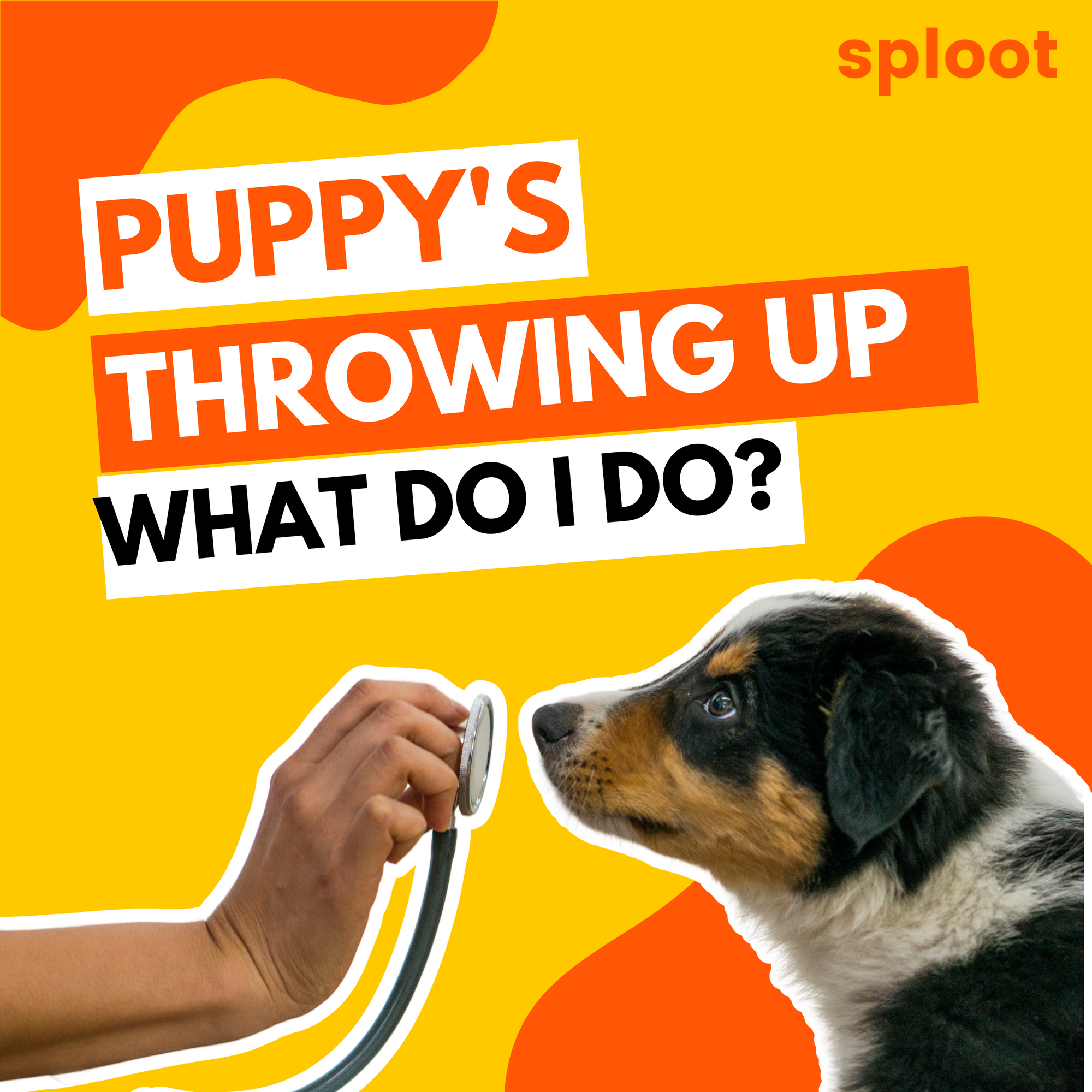Puppy Throwing Up: Causes, Treatment & After-Care

Playing with our furry babies is all fun and games until suddenly one day, we see them throw up. A puppy throwing up is a very common sight in households that are accustomed to dogs. Although a normal thing, if it persists, it can be a sign of an underlying disease.
So how do you differentiate between normal puppy vomiting and serious ones? This blog will cover the causes and symptoms of why our pups throw up and how to treat them. Let’s get out answers!
Why do puppies throw up?
Puppies tend to be very adventurous. They sniff, lick and swallow almost everything around them. This includes edible and unedible items around. While some things pass through their digestive system safely, there are some that their stomach rejects. So, their little bodies react to the substance by throwing it out.
However, here are 5 other common reasons why puppies throw up:
Diet changes
Incorporating a new diet or a new kind of food into their diet can cause them to throw up. Puppies and adult dogs need some time to adjust to new kinds of food. Hence, try providing the new food in small quantities at first.
Overeating
Some puppies can eat like giants. However, it’s not a good idea to feed them too much in one sitting. Monitor their portion sizes and avoid excessive feeding.
Food Intolerances
Just like humans, puppies can develop sensitivities to certain foods. Introduce new foods gradually and watch for any adverse reactions.
Stress or Anxiety
Puppies may vomit as a response to stressful situations, such as changes in their environment or routine. Create a calm and stable environment to reduce stress.
Hunger or Empty Stomach
Leaving a puppy with an empty stomach for too long can trigger vomiting. Ensure they are fed on a regular schedule and provide small, nutritious snacks as needed.
Should you be worried?
An occasional puppy puke is quite normal, so there’s no need to be worried. Puppies throwing up once in a while is not a reason to pay the vet a visit. However, watch out for these signs:
- Non-stop vomiting.
- Blood in the vomit.
- Throwing up mucus and bile with an empty tummy.
If any of these happen, a vet check is a good idea.
Puppy Vomit Color with Causes- Diagnosis
Here’s a chart describing and diagnosing the color and type of puppy vomit and what it could mean.
Remember, always consult your veterinarian for a proper diagnosis and treatment if your puppy is experiencing persistent or concerning symptoms.
Treating a puppy after throwing up
If your puppy is going through a vomiting episode, here's how you can help them at home:
- Give their tummy a break: Hold off on any food or treats for about two to four hours. Let their little belly settle down.
- Keep them hydrated: After the waiting period, offer some room-temperature water or let them lick on ice cubes (just make sure they don't turn into chew toys!).
- Simple and gentle meal: If your puppy seems ready for food, offer a small, bland meal like plain chicken with cooked rice. Yummy and easy on their tummy!
- No meds without the vet: Never give your pup any medications unless your vet gives the green light.
If the vomiting stops and it was a one-time thing, you can gradually get them back on their regular diet. But if the vomiting continues, don't hesitate to reach out to your vet. They'll do some tests and might suggest the right medication, like metronidazole, to help your furry friend feel better.
Remember, your pup's health comes first, so don't shy away from asking the experts.
Symptoms of Serious Vomitting- When to worry?
Although puppy vomiting is normal, it can still sometimes be a symptom of a serious disease. Vomiting is one of the first signs of diseases and illnesses such as parvovirus, worms, stomach infection, etc. Here are the symptoms to monitor:
- Repeated vomiting
- Vomit containing blood
- Lethargy or confusion
- Unproductive vomiting (dry heaving or retching)
- Prolonged hiccups in puppies
- Vomitting along with diarrhea
If you notice any of the following symptoms with vomiting, consider contacting your vet promptly.
Vomiting vs. Regurgitating
What is regurgitating in puppies?
Regurgitation in puppies is when ingested food is brought back up passively without abdominal contractions. It's often caused by esophagus issues, like obstructions, megaesophagus, or motility disorders. If your puppy regurgitates frequently or shows other concerning symptoms, see a vet for proper diagnosis and management.
Here’s a table stating the differences between vomiting and regurgitating in puppies:
If you're interested to read more such blogs or explore the world of pet parenting, download the sploot app here.

